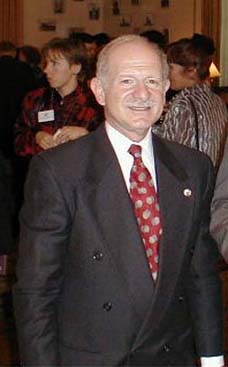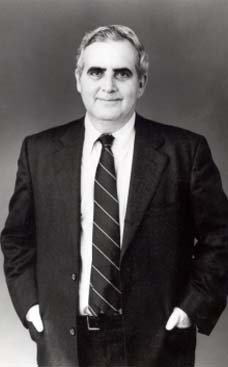
His goal is that at least 200 of the 800 people working at the warehouse by 2010 will have mental retardation, autism or some other cognitive disability. And he hopes at least 40 more will be hired from among the physically disabled — people with paralysis, lost limbs or injured backs.
Peru RPCV Randy Lewis, a senior vice president for Walgreens, hopes to hire 200 peope with mental retardation, autism or some other cognitive disability
Walgreens helps mentally disabled help themselves
By JIM DuPLESSIS
Staff Writer
[Excerpt]
ANDERSON — Randy Lewis earned a master’s degree in 1975. He served with the Peace Corps in Peru. At 55, he is a senior vice president for the Walgreens, one of the nation’s largest drugstore chains.
His fondest hope for his 17-year-old son is a driver’s license.
Lewis is the father of three, including his autistic son, Austin. He also is in charge of distribution for Walgreens, making him one of the executives who picked Anderson in January 2004 as the site for a $175 million warehouse.
The warehouse, which opens in January 2007, will help Walgreens stock its shelves as it rapidly expands in the Southeast.
It also will test Lewis’ belief that technology can enable the disabled to work.
His goal is that at least 200 of the 800 people working at the warehouse by 2010 will have mental retardation, autism or some other cognitive disability. And he hopes at least 40 more will be hired from among the physically disabled — people with paralysis, lost limbs or injured backs.
Altogether, the goal is a warehouse where 30 percent of its work force consists of people with disabilities that usually keep them from employment.
Upstate officials said the scale of the commitment is unprecedented, in their experience, and they have not been able to find comparable undertakings elsewhere.
Bob Oppermann, who runs the state program in Anderson County that helps the disabled return to work, said he was impressed by Lewis’ sincerity.
“He’s somebody you’d love to have as a good friend,” said Oppermann, with the S.C. Vocational Rehabilitation Department. “He has warmth; he has charisma. It’s not hard to see why he got to the position he’s in.”
A PARENT’S STORY
Walgreens received a host of state and local tax incentives to cut the percentage of taxes it will pay. But the rate Lewis talks about is 95 percent — the percentage of working-age people with autism without jobs.
The rate is not much better for those with mental retardation — about 85 percent.
For Lewis, it began with Austin. The boy was diagnosed with autism, a disorder that affects communication and social interaction.
Since Austin was three, his parents have attended meetings with his teachers to discuss the plans required for disabled students. In the halls, Lewis talked with other parents of disabled children. Their children’s disabilities varied, but their parents shared the same fear: After the parents died, would their child end up in an institution or, worse, become homeless?
“Every parent has the same wish: to live one day longer than their child,” Lewis said. “At 21, they’re booted out of the education system and fend for themselves against kids who are much better equipped.”
Just as Austin can laugh at repeated episodes of “The Simpsons,” he could look at 1,000 bags coming through an airport and be as attentive to differences on the last bag as he was on the first, Lewis said.
“He would be the perfect airport screener,” Lewis said. “People with autism can do the same thing over and over again and not be bored.”
A big obstacle for people with autism is their dependence on others for transportation. Lewis said he believes his son can work, if he can get to the job.
“If he can drive, the world would be his oyster,” Lewis said.
Autistic people are especially hard to employ, in part because the disability varies so much. An environment that might do well for one person might not for another, said Dale Thompson, director of the Anderson County agency that cares for about 850 disabled people there, about 40 or 50 of them autistic.
“They’re such unusual people,” Thompson said. “People with autism like being in structured environments. They like sequential processes, structure and sameness.”












